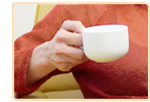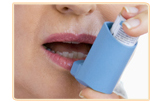Navigating the Difference Between Red Clover and Dong Quai to Treat Menopause
 With a plethora of herbal remedies available at your fingertips, navigating which one is the most effective for your menopausal symptoms can be like searching for a needle in a haystack. However, two of the most effective herbs found in helping to combat menopausal symptoms are red clover and dong quai.
With a plethora of herbal remedies available at your fingertips, navigating which one is the most effective for your menopausal symptoms can be like searching for a needle in a haystack. However, two of the most effective herbs found in helping to combat menopausal symptoms are red clover and dong quai.
But for all of their curative properties towards relieving menopausal symptoms, are there any differences between them?
Read on to find out about the differences between red clover and dong quai in helping to relieve menopausal symptoms.
Which Herb Is More Effective in Treating my Menopause Symptoms?
Red Clover
A source of many nutrients including calcium, magnesium, chromium and vitamin C, red clover is traditionally used to treat respiratory ailments, such as asthma and bronchitis and skin ailments including psoriasis and eczema.
 Researchers believe that isoflavones (chemicals mimicking estrogen) found in red clover might help to reduce symptoms of menopause because of their specific properties. Despite this evidence experts have mixed views that it provides relief of many menopausal symptoms like hot flashes.
Researchers believe that isoflavones (chemicals mimicking estrogen) found in red clover might help to reduce symptoms of menopause because of their specific properties. Despite this evidence experts have mixed views that it provides relief of many menopausal symptoms like hot flashes.
Despite its many uses, red clover is not without its share of risks and a healthcare professional or doctor should be consulted before using it to treat menopausal symptoms.
Dong Quai
Dong Quai, also known as Angelica sinesis, has been used as for centuries by the Chinese in support of its medicinal effects for treating a variety of ailments. With a faint aniselike flavor, oil is often extracted from its seeds for use as a flavoring.
 Used primarily to treat menstrual pain, the numerous effects of dong quai usually give it the title as the foremost herb to treat menopause. In addition to alleviating painful menstrual flow it can also help to stabilize irregular periods and regulate your period after discontinued use of birth control.
Used primarily to treat menstrual pain, the numerous effects of dong quai usually give it the title as the foremost herb to treat menopause. In addition to alleviating painful menstrual flow it can also help to stabilize irregular periods and regulate your period after discontinued use of birth control.
Containing phytoestrogens, this herb helps to regulate estrogen levels in the body to relieve hot flashes, vaginal dryness, mood swings, PMS and fatigue among other symptoms of menopause. It also has mild sedative properties, helping to reduce stress, combat insomnia and stabilize mood swings.
However, dong quai is not recommended for everyone and a healthcare professional or doctor should be consulted before beginning any type of treatment.
Because there are side effects to taking red clover and dong quai, you may consider other natural alternatives to relieve your menopausal symptoms. Click here for more information about herbs used to treat menopause.



























